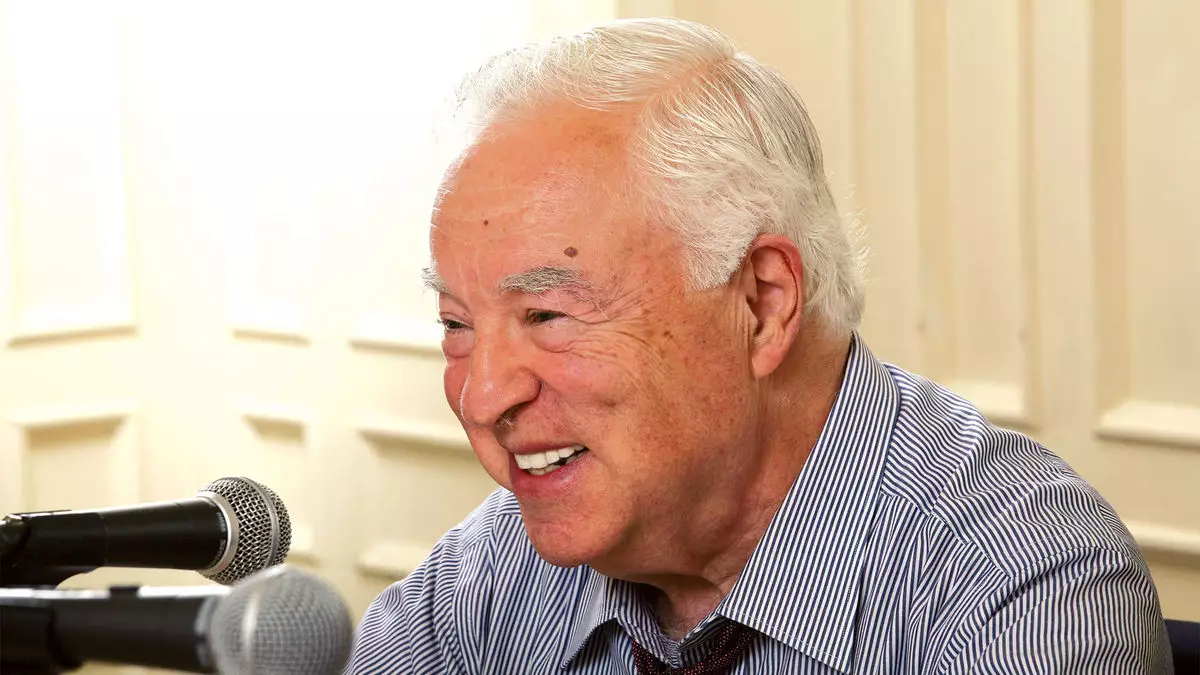Arthur Frommer’s journey from a young soldier in the U.S. Army to a distinguished name in travel literature is both inspiring and indicative of the seismic shifts in travel culture over the past several decades. Born on July 17, 1929, in Campbell, Virginia, to immigrant parents, his formative years were spent in Jefferson City, Missouri, where he honed his communication skills in unique ways, including selling War Bonds over the radio during World War II. This early exposure to public speaking likely laid the groundwork for his future endeavors in writing and broadcasting.
Frommer’s life took an exciting turn when he was stationed in Germany during his military service. His intrinsic wanderlust and linguistic prowess—a command of German, French, Spanish, and Russian—enabled him to explore Europe in depth. The idea of self-publishing “The G.I.’s Guide to Europe” in 1955 emerged from the genuine curiosity of his fellow soldiers, showcasing an initial glimpse into his commitment to sharing travel experiences with a broader audience.
Frommer’s guidebooks, starting with “Europe on $5 a Day” in 1957, revolutionized how travel information was disseminated. The concept of budget travel was relatively novel at the time, and this guidebook quickly became a staple for thrifty travelers, selling millions of copies and establishing Frommer as a household name. In many ways, he democratized travel, empowering everyday people to explore the world affordably. Over the decades, his brand has sold over 75 million guidebooks, catapulting Frommer into a singular position within the travel industry.
Interestingly, before achieving acclaim as a travel writer, Frommer pursued a legal career and was involved in several noteworthy cases, including defending D.H. Lawrence’s controversial novel “Lady Chatterley’s Lover.” This legal background may have equipped him with the analytical skills required for meticulously researching and presenting travel information.
Frommer didn’t stop at publishing; he ventured into creating travel experiences through his $5-A-Day Tours launched in 1962. This bold initiative featured unique itineraries that offered more personal and intimate ways to connect with destinations—idealistic for its time. He foresaw the burgeoning demand for experiential travel, making the concept of “meeting the locals” a core offering. Unfortunately, his ambition faced setbacks during the 1970s, particularly following airline deregulation, which battered his tour operation.
Despite facing obstacles and criticisms within the travel advisor community, Frommer’s resilience was evident when he adapted to market pressures. He licensed his guidebook series to Simon & Schuster to stabilize the financial downturn, demonstrating his shrewd acumen in navigating crises while still maintaining brand identity.
An Enduring Legacy in Travel Media
Perhaps one of the most remarkable aspects of Arthur Frommer’s career was his ability to embrace new media horizons to sustain his relevance. Launching one of the first travel shows on the now-iconic Travel Channel, hosting a syndicated newspaper column, and running a weekly radio show established him as a multifaceted authority in travel advice for over two decades. His late return to WOR radio in 2006, alongside his daughter Pauline, reflected not only his enduring passion for travel but also the importance of generational continuity in his legacy.
Frommer also expanded his influence into digital media, continuously adapting to the evolving landscape of travel information sources. The establishment of Frommer Media in 2019 solidified both his and his daughter’s commitment to keeping the brand vibrant in the digital age.
Arthur Frommer passed away at age 95 on November 18, sending ripples through the travel industry and to countless individuals whose adventures were shaped by his insights. His barrier-breaking ethos not only transformed how people traveled but also how they perceived the art of exploration itself. From guidebooks to tours and media appearances, his contributions forged a legacy that resonates even in today’s quickly shifting travel landscape.
As future generations take to the roads and skies, they will inevitably reflect on the path paved by pioneers like Arthur Frommer—whose insights remain relevant, inspiring new travelers to embrace their journeys with curiosity and confidence. Ultimately, his life serves as a humble reminder of the importance of sharing knowledge and experiences in a continuously evolving world.


Leave a Reply